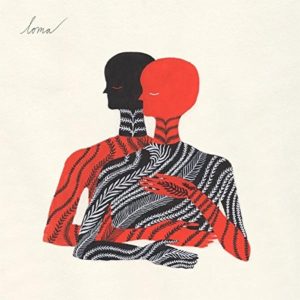Marketplace
2018 Sub Pop Records PRESSING
- Catalog Number SP1214
- Release Year 2018
- Vinyl Mastering Engineer Greg Calbi with Steve Fallone
- Vinyl Color Yes
- Jacket Style Single
When listening to this album I think of this band or music:
Life doesn’t come with a slow-motion button, but Loma’s self-titled debut seemingly puts instruments through a decelerator. The band zooms in on a luxurious, warm, and patient sound that emphasizes minute details. The trio—comprised of exes Emily Cross and Dan Duszynski of Cross Records, and Jonathan Meiburg of Shearwater—possess neither the wide-screen rock of the latter ensemble or obtusely fragile acoustics of the former. Instead, Loma’s low-key and luminescent music evokes that of label mates Beach House.
I would listen to this album while:
Loma is a wind-down album meant for evenings. And despite their perky moments, even the more aggressively melodic songs remain anchored in a soft, psychedelic glow.
Music from this album would be a great soundtrack to:
Considering much of Loma’s work abstractly unspools—imagine watching a painting appear brushstroke by brushstroke—the record would make a wonderful score for a grown-up-orientated animated work. The Oscar-nominated The Red Turtle, an enchanting story of one man’s life that feels like a modern folk tale, springs to mind.
While it isn’t necessary to appreciate Loma, an interesting backstory enlightens and enhances the work—especially as you may start to long for the group to more often vary the pace. Jonathan Meiburg’s band Shearwater was touring with Cross Records. Ultimately, Meiburg asked the duo, who doubled as a married couple, to collaborate on a record. Throughout the course of making the self-titled collection, Emily Cross and Dan Duszynski’s union unraveled. Loma then unexpectedly became a break-up effort, albeit an unconventional one. Meiburg penned all the lyrics, which serve as an attempt to get inside Cross’ mind. And while Cross and Duszynski continued to play together, the album nonetheless possesses a mournful, intimate, and distant tone.
Much of Loma feels suspended in time—not quite moving forward yet also not obsessing over the past. “No one can see you like I do/No one can see it like I do,” sings Cross amid the elastic electronics of “Relay Runner,” the words reflecting a deep connection while also hinting at isolation. Loma in turn feels like a snapshot of a particular place in time. The recordings are populated with sonic tidbits from the Austin house in which the album was recorded. Vibrations of Texas insects meld into the groove on “Relay Runner.” “Sundogs” is built around a rustling of leaves and the song’s midpoint gives way to panting pups. The breaths initially seem like an intrusion but soon disappear into a stark woodland beat, creating the sensation that suggests Loma’s songs just sort of appear in nature.
While Cross often sings barely above a whisper in her duo with Duszynski, she stretches her vocals here. Vide, the ambient, operatic hush of “Who is Speaking?” and subtle ballad-like dramatics of “White Glass.” Her tranquil voice possesses a calm that reigns in the sputtering, digital textures of “Dark Oscillations” and relaxes the road-weary Americana of “Joy.” The centerpiece, “I Don’t Want Children,” witnesses nursery-rhyme-like plucks and Cross’ choir-ready singing delivering heartbreak at its most kindhearted.
“I don’t want children/Even though if I did/I would want them/From you,” she confesses. It’s the sort of acknowledgement that stays with you long after the song ends and lovingly captures the harshness of irreconcilable differences.
Loma


 3.5
3.5